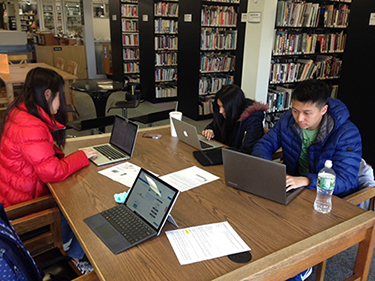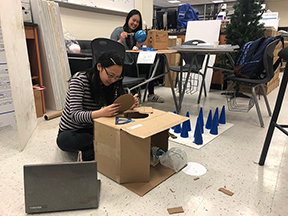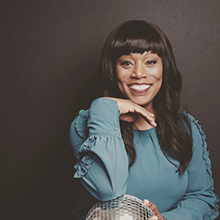Fostering Essential Skills with ExploraVision
We all learn the basics of science in grade school. We are taught the composition of a water molecule, why opposites attract, and how the mitochondria are the powerhouse of the cell. However, educational standards today can take all the fun out of learning. Test preparation and testing are prioritized over projects and field trips, particularly when it comes to statewide exams. True learning comes from exploration, which is lost in this process. The ExploraVision competition brings exploration right back to the forefront of our science curriculum, which is why it is such an invaluable part of my classroom.
As Jericho High School’s Science Research coordinator, I build my curriculum to ensure student success through exploratory activities and questioning. Writing, research, communication, and presentation skills all come together in a single course. ExploraVision challenges all of these skills in one project, providing a unique learning opportunity for my students that I have chosen to include in my classroom year after year.
Research Skills
In today’s society, it is easy to be sidetracked by the constant influx of information available at our fingertips. When my students begin their work on ExploraVision, the first few weeks are always the most difficult as groups struggle to discern scientific truth from myth. What’s a problem that needs to be addressed? How can we resolve this using the most efficient method possible? ExploraVision introduces the twist of having to think beyond current technology and grasp at what might be possible in the future. This creative aspect of the competition is part of the reason why students are always excited to begin their ExploraVision project. With such a broad prompt, students are encouraged to make their wildest dreams come true, while maintaining the integrity of true scientific thinking.

ExploraVision-winning team Cancer BAN-R meets regularly at the library to research their idea.
Writing and Communication Skills
I teach students in the science research program how to write succinct scientific papers starting during their sophomore year. The three main keys to effective scientific writing are summed in the following acronym: CAB (Concise, Articulate, and Bulleted points). To drive home this concept, I ask my students to develop an outline which includes only the necessary points. ExploraVision is a great way to practice writing scientific papers because it challenges students to distill the ideas they have been researching for months into a single document of 11 pages.
Presentation Skills
Presenting your work in a way that peers can understand is essential in any field. Especially in the scientific world, the work we do is 50% “the science” and 50% “the sell”. On the one hand, without meaningful understanding and a thorough literature review, the project will lack depth and relevance. On the other hand, without a proper rationale, the project will have a weak influence. When my students partake in ExploraVision, they are challenged to present complex ideas in a simple, yet scientifically sound way. I work with my students to think of creative ways to deliver their message and, through ExploraVision, my students have learned valuable skills in presentation, website creation, engineering, and video production.

The Cancer BAN-R team is always learning new skills. Here they create physical representations of their product.
Conclusion
I continue to enter the ExploraVision competition each year as a coach and mentor in order to promote science education. Although I was unaware of science research competitions when I was in high school, looking back now, I know such an opportunity would have been instrumental in promoting lifelong learning. So many talented high schoolers are unaware or unable to participate in scientific research, and I believe introducing ExploraVision to my students has cemented their love of science and fostered the next generation of scientists. This experience goes beyond stanardized STEM education. The skills that are learned in the process are used for years to come by my students, no matter what they endeavor to accomplish.
Download these powerful K-12 science lesson plans to get started!
About the Author

Serena McCalla is a science educator at Jericho High School in New York. She uses the ExploraVision program in her classroom to promote scientific research and the skills that accompany it, which have served her students well beyond their years in grade school. She believes the competition can help inspire a lifelong love of science in young learners and hopes she can inspire other teachers to introduce ExploraVision in their curriculums.